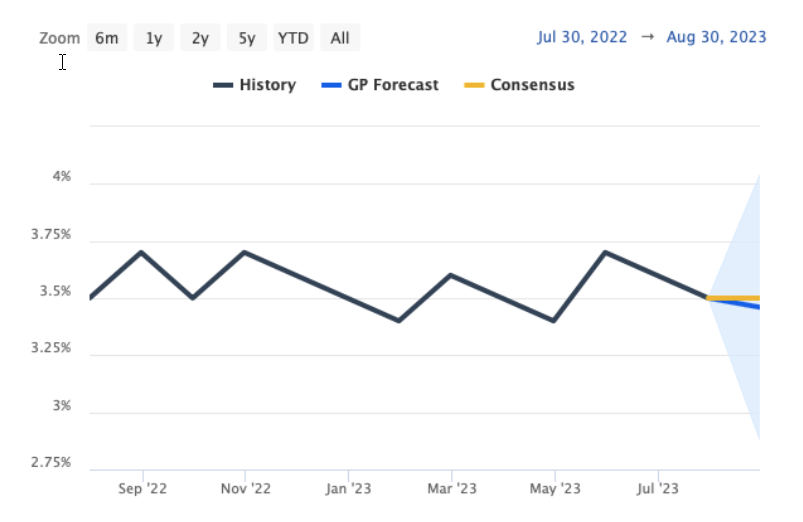Core Functions of Investment Bankers
They are the architects of financial deals, the mediators between companies and investors, and the strategists who make the financial world go round. Let’s delve into the core functions that make investment bankers indispensable in the financial ecosystem.
The Art of Mergers and Acquisitions
Mergers and Acquisitions, commonly known as M&A, are the bread and butter of investment banking. Investment bankers act as the middlemen who facilitate these high-stakes transactions. They advise companies on the strategic fit of a business, conduct due diligence, and even help in structuring the deal. In essence, they’re the puppet masters pulling the strings behind multi-billion-dollar deals.
Macro Insight: According to recent economic updates, the Federal Reserve’s stance on maintaining a 2% inflation target could potentially influence M&A activities. Companies might be more inclined to merge or acquire in a stable inflationary environment.
The Underwriting Saga
When a company wants to go public or issue new securities, investment bankers come into play. They assess the value of the company, determine the initial offering price, and even buy the securities to resell them to the public. This process, known as underwriting, is crucial for companies looking to raise capital and expand.
Managing Assets Like a Pro
Investment bankers aren’t just deal-makers; they’re also asset managers. They manage large portfolios for institutional clients, balancing risks and rewards to achieve optimal returns. They employ various strategies, from asset allocation to selecting individual securities, to ensure that the portfolio meets the client’s financial goals.
Macro Insight: With US unemployment rates forecasted to come in below consensus, a stable job market could lead to increased investment activities, thereby influencing the asset management strategies employed by investment bankers.
A Day in the Life of an Investment Banker
Ever wondered what it’s like to be an investment banker? Forget the Hollywood portrayal; let’s get into the real nitty-gritty. A day in the life of an investment banker is a whirlwind of activities, a blend of high-stakes decisions and meticulous analysis.
From Dawn to Desk
The day often starts before the sun rises. Emails and news updates are the first order of business, setting the tone for the day. Market trends are analyzed, client emails are answered, and the day’s agenda is set. It’s not just about numbers; it’s about staying ahead of the game.
The Midday Hustle
As the clock ticks towards noon, the pace intensifies. Client meetings, internal discussions, and perhaps a quick glance at the stock market take center stage. This is also when investment bankers liaise with other departments, be it legal, compliance, or risk management, to ensure that all deals are above board.
Macro Insight: With US Core PCE Prices forecasted to come in below consensus, investment bankers may adjust their midday strategies to account for potential market reactions.
The Evening Wind-Down? Think Again!
If you thought investment banking is a nine-to-five job, think again. Evenings often involve finalizing deals, preparing for the next day, and yes, more client meetings. It’s a never-ending cycle, but that’s what makes this profession so exhilarating.
The Stress Quotient
Let’s not sugarcoat it; investment banking is stressful. The high stakes, the long hours, and the constant need to stay updated can take a toll. But it’s this very stress that also makes the job rewarding. Closing a deal or seeing a portfolio perform well can offer a sense of accomplishment that few other professions provide.
By stepping into the shoes of an investment banker for a day, one can truly appreciate the complexity and dynamism of this profession. It’s not for the faint-hearted, but for those who thrive on challenges, it’s a career that offers both financial rewards and intellectual satisfaction.
The Financial Rewards of Investment Banking
Investment banking is often considered the epitome of financial success, and for good reason. The financial rewards in this industry are substantial, but they come with their own set of challenges and responsibilities. Let’s delve into the nitty-gritty of the compensation model that makes investment banking one of the most lucrative career paths in the financial world.
Dollars and Cents The Salary Structure
The salary in investment banking varies significantly based on experience, position, and the bank’s prestige. Entry-level analysts can expect to earn a base salary ranging from $80,000 to $100,000. As you climb the corporate ladder, the numbers get even more impressive. Managing Directors can earn a base salary upwards of $500,000, not including bonuses.
Bonuses and Perks
Bonuses are the icing on the cake in investment banking. These are often performance-based and can sometimes exceed the base salary. It’s not uncommon for top performers to take home bonuses in the seven-figure range. Additionally, investment bankers enjoy perks like expense accounts, travel allowances, and sometimes even company cars.
The Economic Backdrop
It’s worth noting that broader economic conditions influence the financial rewards in investment banking. For instance, in a bullish market or during times of low unemployment, investment banks often see an uptick in business, which translates to higher employee bonuses. Current economic indicators suggest a favorable environment for investment banking, with upcoming stats showing forecasts of lower-than-expected unemployment rates in the U.S.
In summary, the financial rewards in investment banking are lucrative but come with high expectations and responsibilities. The compensation model is complex, influenced by both individual performance and broader economic conditions. So, if you’re considering a career in investment banking, prepare to work hard, but also prepare for some substantial financial rewards.
The Investment Banking Ecosystem
Investment banks are the linchpins that hold the financial markets together. They facilitate transactions, provide liquidity, and offer financial advisory services. In doing so, they interact with various other financial institutions, including hedge funds, private equity firms, and governmental bodies. This interconnectedness makes them indispensable in the financial market, acting as gatekeepers and enablers of capital flow.
Who’s Who in the Investment Banking World
The hierarchy within an investment bank is a well-oiled machine, each part performing its specific function. At the base are the analysts, the foot soldiers who do the grunt work of number-crunching and data analysis. As you move up, you encounter associates who act as middlemen between analysts and the upper echelons. Further up are the Vice Presidents (VPs), who oversee deals and transactions. At the pinnacle are the Managing Directors, the decision-makers who steer the ship.
Understanding the investment banking ecosystem is crucial for anyone looking to delve into the financial markets, either as a career or as an investor. It’s a world that thrives on expertise, precision, and a deep understanding of market dynamics. And while it may seem like a labyrinth to the uninitiated, those who navigate it well find it to be a landscape of endless possibilities.
Breaking into Investment Banking
Investment banking is often viewed as the Holy Grail of finance careers, a world filled with lucrative deals, high-stakes negotiations, and eye-popping bonuses. But what does it take to break into this exclusive circle? The answer lies in a combination of education, skills, and a dash of networking prowess.
The Academic Ladder to Wall Street
Regarding education, investment banking is a field that sets the bar high. A bachelor’s degree in finance, economics, or a related field is almost a given. However, the real differentiator often comes in the form of an MBA from a top-tier institution. Graduates from Ivy League schools or other prestigious universities have a distinct advantage in this competitive landscape.
Skills that Make You a Hot Commodity
Beyond formal education, specific skills can make or break your investment banking aspirations. Financial modeling, data analysis, and a deep understanding of mergers and acquisitions are just the tip of the iceberg. Soft skills like communication, negotiation, and the ability to work under extreme pressure are equally important.
Networking Your Way to the Top
In investment banking, who you know can be just as important as what you know. Networking events, alumni connections, and even social media platforms like LinkedIn can be valuable conduits to your dream job. Don’t underestimate the power of a well-placed recommendation or the impact of rubbing elbows with industry insiders.
The Digital Toolbox for Aspiring Bankers
In today’s tech-savvy world, mastering various financial software and tools can give you a leg up. Familiarity with platforms like Bloomberg Terminal, Microsoft Excel, and various risk assessment software can make you a more attractive candidate.
The Future of Investment Banking
As we sail into the uncharted waters of the future, investment banking isn’t what it used to be. The industry is undergoing a seismic shift, thanks to technological innovations and regulatory changes. Let’s delve into the details.
The Digital Revolution in Investment Banking
The fintech wave is sweeping across the financial sector, and investment banking is no exception. Artificial Intelligence, blockchain, and big data analytics are some technologies reshaping how investment banks operate. These technologies are not just buzzwords; they are tools that have the potential to automate mundane tasks, enhance risk assessment, and even revolutionize asset management.
Macro Insight: According to recent global economic trends, technological advancements are pivotal in the financial sector. The S&P 500, for instance, has been influenced by mixed economic signals and Federal Reserve policies, which are increasingly focusing on technological aspects to achieve targets like the 2% inflation rate.
Regulatory Ripples
The 2008 financial crisis was a wake-up call for regulators around the world. Since then, many laws and regulations have been enacted to ensure greater transparency and accountability in the financial sector, including investment banking. The Dodd-Frank Wall Street Reform and Consumer Protection Act in the U.S. and the European Market Infrastructure Regulation (EMIR) in Europe are just a couple of examples. These regulations profoundly impact how investment banks operate, from capital requirements to client relationships.
Macro Insight: Upcoming statistical releases indicate that U.S. unemployment and Core PCE Prices are forecasted to come in below consensus. These economic indicators often influence regulatory stances, affecting investment banking operations directly.
The Road Ahead
The future of investment banking is not set in stone. It’s a dynamic landscape influenced by various factors, from technological disruptions to regulatory changes. Investment banks that adapt to these changes are more likely to thrive, while those that resist may struggle to keep up.
Macro Insight: Consumer confidence metrics, like the recent sharp decline in Turkey, can serve as early indicators of market sentiment, which can influence investment banking strategies.
The future of investment banking is a complex tapestry woven with threads of technological innovations and regulatory frameworks. It’s an evolving narrative that demands attention, adaptability, and a forward-thinking approach. So, whether you’re an aspiring investment banker or an industry veteran, keeping an eye on these trends is not just advisable—it’s essential.





